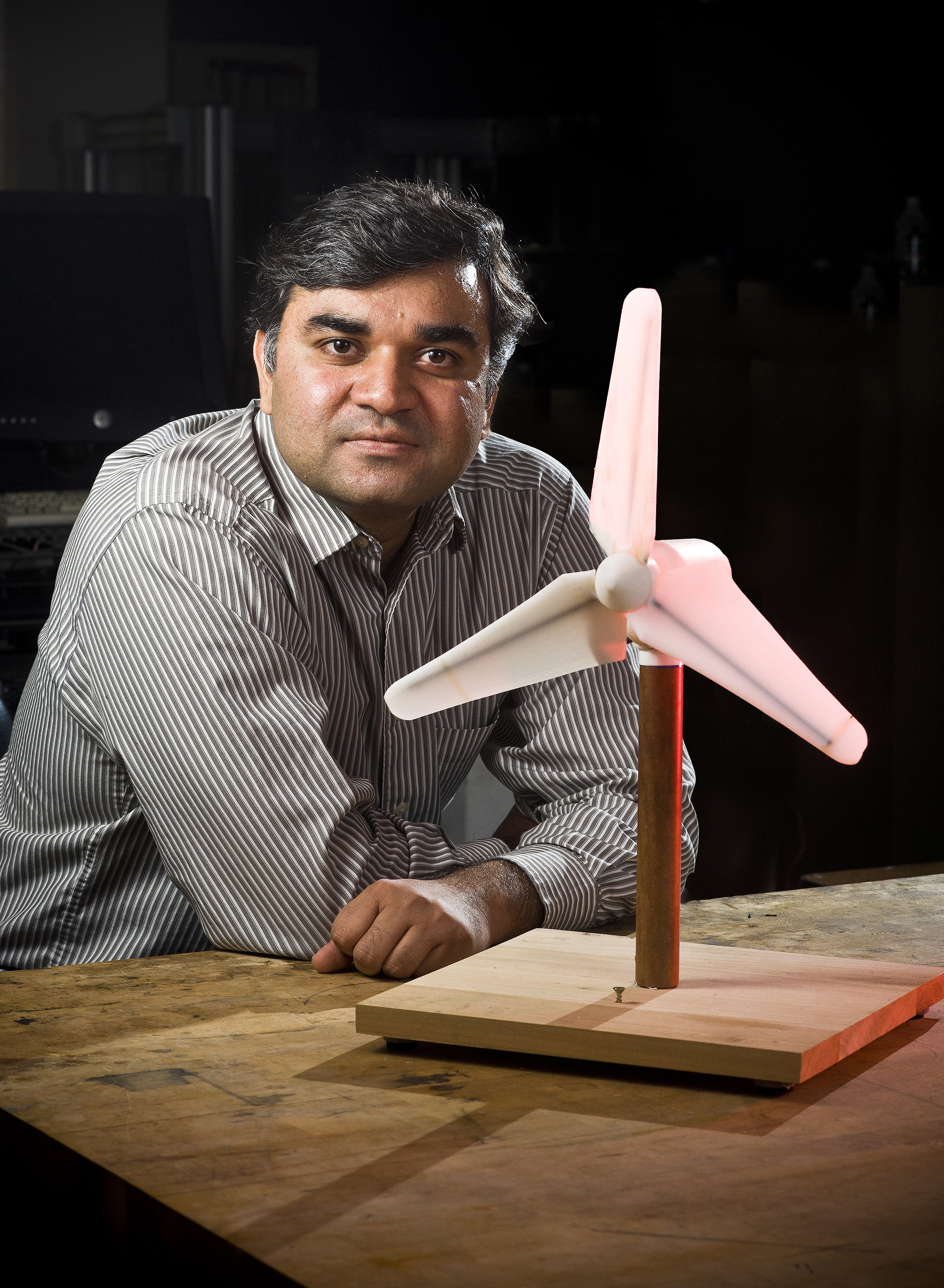Virginia Tech reaping worldwide leadership in energy harvesting

Dozens of researchers from around the world will meet with government officials and representatives from private industries in Blacksburg this fall with a simple mandate – find promising new technologies that will transform virtually every aspect of modern life.
The 10th annual Energy Harvesting Workshop will be held Sept. 13-16 at The Inn at Virginia Tech and Skelton Conference Center. In addition to providing a unique venue to connect the important players in the energy harvesting field, the event will highlight the university’s role in this important field.
“The workshop demonstrates Virginia Tech’s continuing leadership in energy harvesting on a global scale,” says Richard Benson, the Paul and Dorothea Torgersen Dean of the College of Engineering at Virginia Tech. “It’s a part of our ongoing effort to be the bridge between theory and application in this vital area of engineering and science.”
Registration for the event is open until Sept. 7. Researchers may submit abstracts until June 15.
Shashank Priya, the Robert E. Hord Jr. Professor of Mechanical Engineering at Virginia Tech, has been the workshop’s organizer from its origins over a decade ago. He says the workshop differs from other typical academic conferences.
“We’re not here to talk about theories or hypotheticals,” Shashank says. “We’re bringing together representatives from private industry, academia, government and the investment community interested in seeing energy harvesting research that is ready to be transformed into real-world applications and deployment.”
The event’s organizing committee includes representatives from more than a dozen universities worldwide, representing some of the top departments and researchers in energy harvesting.
The term ‘energy harvesting’ refers to a host of technologies and engineering processes that captures energy that’s in a given environment and channels it into electricity, heat or other forms that can be productively used by electronic devices and other applications. In practice, this can be accomplished through a wide range of potential technologies from solar panels and windmills to wearable devices the generate electricity as you move.
The field of energy harvesting is emerging as important part of the world’s technological landscape, and it has the potential to decrease the modern world’s dependency on large-scale power generation through fuels such as fossil fuels and nuclear isotopes. Virginia Tech is one of two universities nationwide that have a National Science Foundation-sponsored center dedicated to energy harvesting.
The workshop this year will provide in-depth information on various energy harvesting techniques, including energy conversion processes and materials, energy storage, electronics, and applications.
Priya says this mix of topics reflects the changing dynamics of the field. He also hopes the event will continue to grow with each passing year, assuring Virginia Tech’s leadership in this field.
Dedicated to its motto, Ut Prosim (That I May Serve), Virginia Tech takes a hands-on, engaging approach to education, preparing scholars to be leaders in their fields and communities. As the commonwealth’s most comprehensive university and its leading research institution, Virginia Tech offers 240 undergraduate and graduate degree programs to more than 31,000 students and manages a research portfolio of $513 million. The university fulfills its land-grant mission of transforming knowledge to practice through technological leadership and by fueling economic growth and job creation locally, regionally, and across Virginia.
Written by Dana Cruikshank.




.jpg.transform/m-medium/image.jpg)